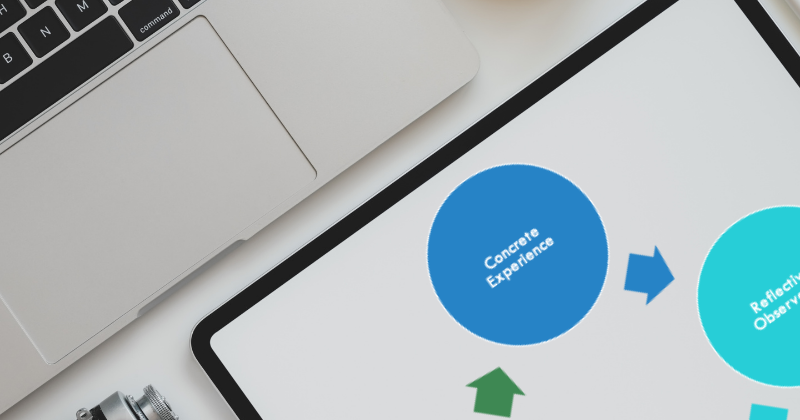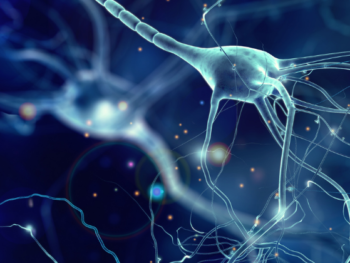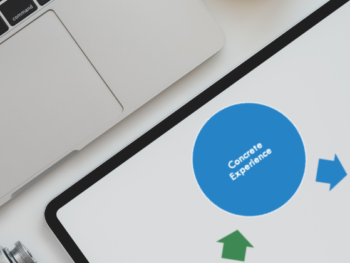Experiential Learning Theory (ELT) defines learning as the process of creating knowledge through a cycle of experience, reflection, observation, and experimentation (Kolb, 1984). At Pongos Learning Lab, most of the classes we teach use the Experiential Learning Model (ELM), which is a iterative process of four modes (Kolb & Fry, 1975):
- Concrete Experience: I did something.
- Reflective Observation: What did I experience?
- Abstract Conceptualization: Why did that happen?
- Active Experimentation: What do I do next?
For example, when we teach “YouTube Stars,” students create a video, reflect on the experience, and think about why things went the way they did. Then students record another video. They repeat the process indefinitely. In fact, some students have been with us for a few years now, and keep going through the process. Their videos started off very basic, but over time they became increasingly complex and polished.
Learn more about Experiential Learning Theory in my presentation.
References
Kolb, D. A. (1984). Experiential learning: Experience as the source of learning and development. Englewood Cliffs, NJ: Prentice-Hall.
Kolb. D. A. and Fry, R. (1975) ‘Toward an applied theory of experiential learning;, in C. Cooper (ed.) Theories of Group Process, London: John Wiley.





